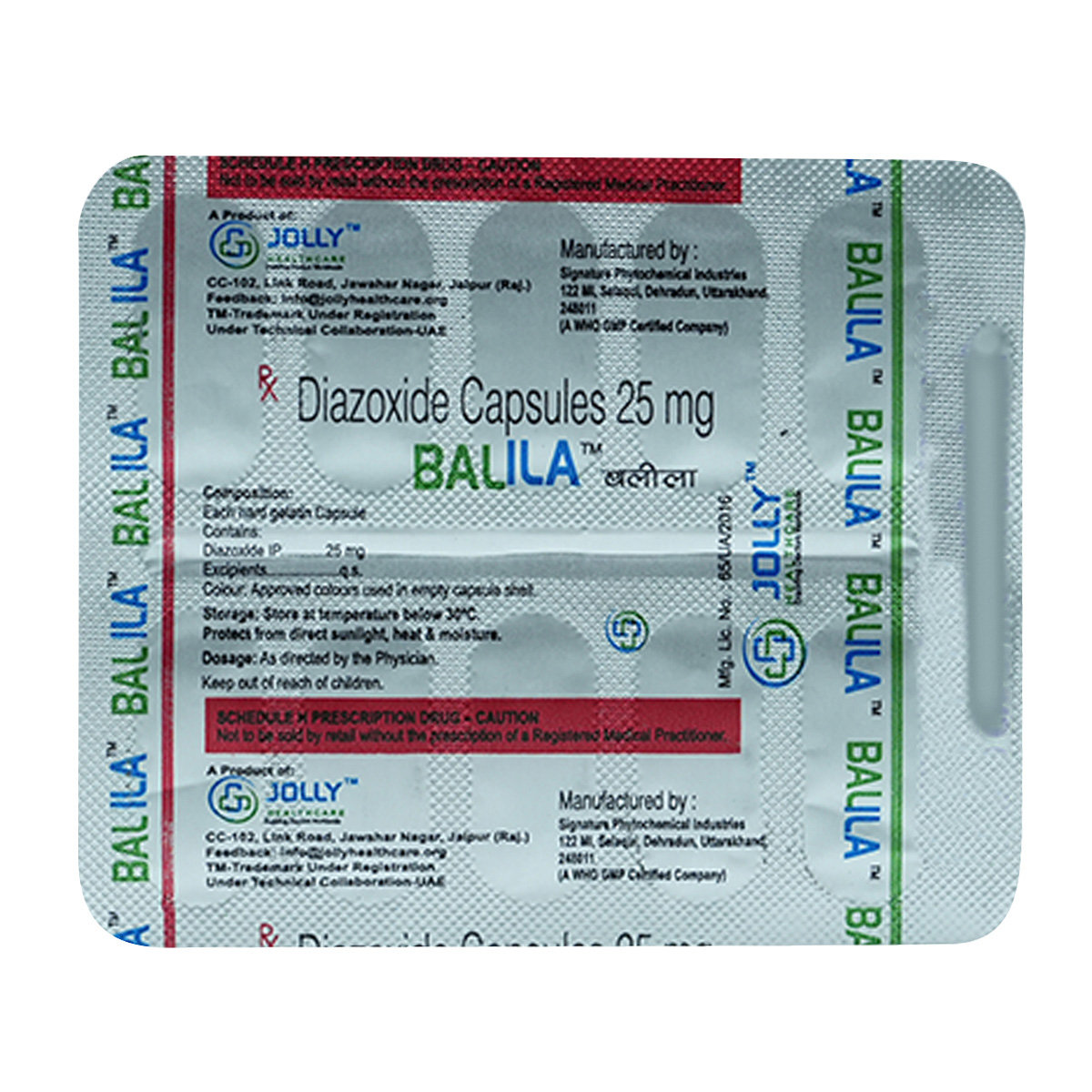Diazoxide
About Diazoxide
Diazoxide belongs to the group of medicines called thiazides used to treat low blood sugar. A low sugar level in the blood is caused by an increase in the amount of the hormone insulin being produced by the pancreas.
Diazoxide contains Diazoxide, which works by preventing insulin release from the pancreas, helping to return the blood sugar to normal levels.
In some cases, Diazoxide may cause side effects such as nausea, vomiting, lack of appetite, and diarrhoea. Most of these side effects may not require medical attention and resolve gradually over time. However, talk to the doctor if the side effects persist or worsen.
Consult the doctor if you are pregnant or trying to become pregnant. Do not take Diazoxide if you are breastfeeding. Inform the doctor about your medications and health condition to rule out any unpleasant side effects/interactions.
Uses of Diazoxide
Medicinal Benefits
Diazoxide belongs to the group of medicines called thiazides used to treat low blood sugar. Diazoxide contains Diazoxide, which works by preventing insulin release from the pancreas, helping to return the blood sugar to normal levels.
Directions for Use
- Take Diazoxide with or without food or as advised by a doctor.
- Follow your doctor's instructions on the dosage and timing of this medication, to ensure the safety.
- Swallow the medicine as a whole with a glass of water.
- Do not crush, split, or chew it.
Storage
Side Effects of Diazoxide
- Vomiting
- Diarrhoea
- Lack of appetite
- Nausea
Drug Warnings
Do not take Diazoxide if you are allergic to any of its components. Inform the doctor if you have heart problems, high levels of uric acid or gout, high blood pressure, or kidney or liver problems. Consult the doctor if you are pregnant or planning to become pregnant. Do not take Diazoxide if you are breastfeeding. Let the doctor know if you are taking any other medicines, including herbal products and vitamin/mineral supplements.
Drug Interactions
Drug-Drug Interactions: Inform the doctor if you are taking diuretics (furosemide), antihypertensives (propranolol, methyldopa, captopril), blood thinner (warfarin), steroids, oral contraceptives, anti-epileptics (phenytoin).
Drug-Food Interactions: No interactions found/established.
Drug-Disease Interactions: Inform the doctor if you have heart problems, gout or high levels of uric acid.
Drug-Drug Interactions Checker List:
Safety Advice

Alcohol
consult your doctorIt is not known if alcohol interacts with Diazoxide. Please consult your doctor.

Pregnancy
cautionConsult the doctor if you are pregnant, think you may be pregnant or planning for pregnancy.

Breast Feeding
unsafeDo not take Diazoxide if you are breastfeeding.

Driving
cautionDiazoxide may cause blurred vision. Drive or operate machinery only if you are alert.

Liver
consult your doctorPlease consult the doctor if you have a liver impairment or any concerns regarding this.

Kidney
consult your doctorPlease consult the doctor if you have kidney impairment or any concerns regarding this.

Children
consult your doctorDose adjustment may be needed. Please consult your doctor.
Habit Forming
Diet & Lifestyle Advise
- Follow the diet plan advised by the doctor.
- Maintain a healthy weight by exercising regularly.
- Rest properly and avoid stress by doing meditation or yoga.
- Avoid foods high in saturated fats or trans fats.
- Reduce or avoid processed and refined sugars from your diet.
- Do not consume alcoholic beverages.
Patients Concern
Disease/Condition Glossary
Hypoglycaemia: Hypoglycaemia, also known as low blood sugar, occurs when the sugar/glucose levels in the blood are lower than normal. It is caused by an increase in the amount of the hormone insulin being produced by the pancreas. Symptoms of low blood sugar include fatigue, mental confusion, irritability, excessive hunger, fainting, nausea, vomiting, excessive sweating, shakiness, fast heartbeat, blurred vision, and anxiety.
FAQs
Diazoxide is used to treat Hypoglycaemia (low blood sugar).
Diazoxide works by preventing insulin release from the pancreas, helping to return the blood sugar to normal levels.
Do not stop taking Diazoxide without talking to the doctor. Continue taking Diazoxide for as long as your doctor has prescribed it to you. Talk to your doctor if you experience any difficulty while taking Diazoxide.
Diazoxide may cause dizziness, especially when you stand up. Therefore, avoid getting up too fast from a sitting or lying position; instead, get up slowly. If you feel dizzy, sit down for a few moments until the feeling passes.




